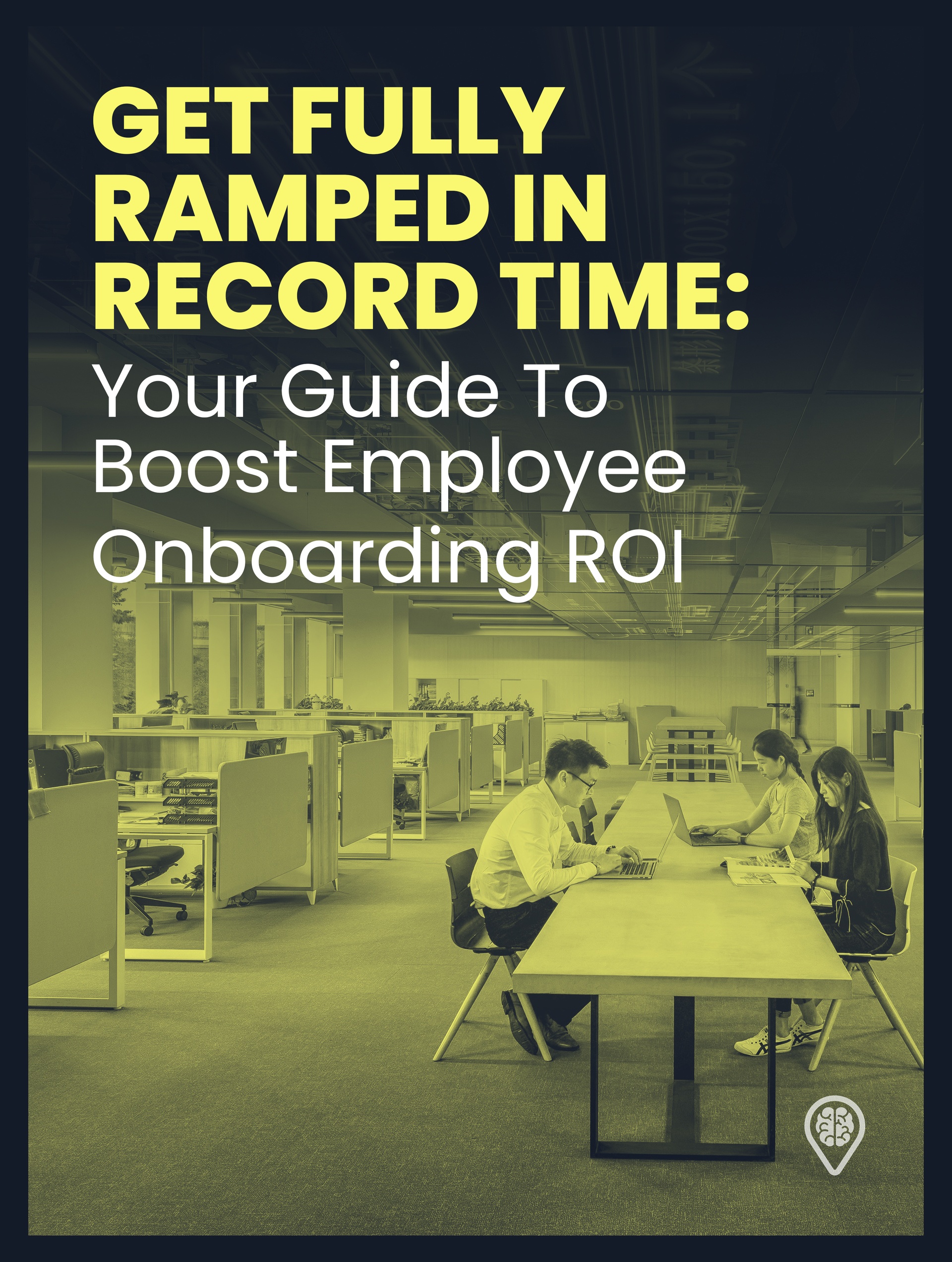Tips To Boost Onboarding Efficiency For Mentors And SMEs
While eLearning is indeed an important part of the onboarding process, a blended learning approach—incorporating both digital and face-to-face training—offers the greatest potential for boosting ROI. And leveraging your mentors and Subject Matter Experts (SMEs) is one of the most effective ways to do this.

What Are Mentors?
Of the Fortune 500 companies—the largest and most successful businesses in the world—84% use mentoring programs as part of their onboarding process. [1] Why? Because mentors can play a critical role in helping new hires get up to speed quickly and smoothly.
Mentors are typically more senior employees who have been with the company for some time and possess the knowledge and experience to help new hires adjust to the company culture, learn the ropes, and hit the ground running.
These mentor figures can provide valuable insights into how things work within the organization, offer guidance on career development, share best practices, and more.
What Are SMEs?
SMEs are Subject Matter Experts who have in-depth knowledge of the company’s products, services and industry. In the context of onboarding, these people are usually the higher-ups in each department; they are incredibly knowledgeable in their particular role, and therefore invaluable resources for new hires.
Why SMEs And Mentors Are Crucial To Boosting ROI
The fact is, mentoring and SME involvement can have a significant impact on the overall success of an organization’s onboarding process. According to research from National Mentoring Day, 67% of businesses that used mentoring reported an increase in productivity, and 55% saw a profit boost.
These statistics aren’t overly surprising when you think about the nature of mentorship. It’s a winning combination of skills transfer, socialization, and support. In other words, mentoring allows new hires to get up to speed quickly, facilitates their assimilation into the company culture, and offers them the encouragement they need to succeed.
SME involvement is equally valuable in terms of boosting ROI. When new hires are able to tap into the wealth of knowledge and experience that SMEs have—knowledge that relates to their specific role, no less—it accelerates their learning process and allows them to hit the ground running.
How To Increase Mentor And SME Efficiency
There’s a statistic that mentoring proponents don’t often discuss; the fact that, while mentorship is incredibly useful, two out of three pairings will fail if not properly managed. [2]
The reason for this is simple: mentors and SMEs are busy people. They may be willing to help out a new hire, but they can only do so if their time is managed effectively. That’s why it’s important to have a process in place for getting the most out of their involvement.
Here are a few tips for increasing mentor and SME efficiency:
- Make sure mentors and SMEs are aware of the goals of the onboarding process, and that their role is specifically to help new hires achieve these goals. It’s not enough to simply hope that mentors will step up to the task organically—everyone has their own busy schedule to contend with.
- Schedule regular check-ins with mentors and SMEs to ensure they are providing the support that new hires need. This also allows you to track the progress of new hires and make necessary adjustments along the way.
- Ensure that mentors and SMEs have access to the necessary resources, such as training materials and contact information for other relevant personnel.
- Make sure mentors and SMEs are adequately compensated for their time and effort. It is crucial to maintain their enthusiasm and commitment to the onboarding process.
- Finally, ensure that the SMEs and mentors themselves are given training on how to be effective mentors. This will help them to be better equipped to support new hires.
So, how exactly do these actions reduce eLearning costs and reduce ROI? By effectively leveraging the knowledge and experience of your mentors and SMEs, you can minimize the amount of time it takes for new hires to get up to speed. This means they are productive from day one, which in turn boosts your bottom line.
Conclusion
It’s clear that a blended learning approach—incorporating both digital and face-to-face training—offers the greatest potential for boosting ROI. By leveraging your mentors and SMEs, you can ensure that new hires get up to speed quickly and smoothly and that they are productive from day one.
Download the eBook Get Fully Ramped In Record Time: Your Guide To Boost Employee Onboarding ROI to onboard with ease and stretch your L&D resources. You'll discover how to not only create a budget but stick to it by leveraging the right outsourcing partner and proven strategies. You can also join the webinar to learn the secrets of how to fully ramp in a flash.
References:
[1] Does Mentoring Still Matter For Fortune 500 Companies?
[2] The Common Pitfalls in Mentoring Programs










